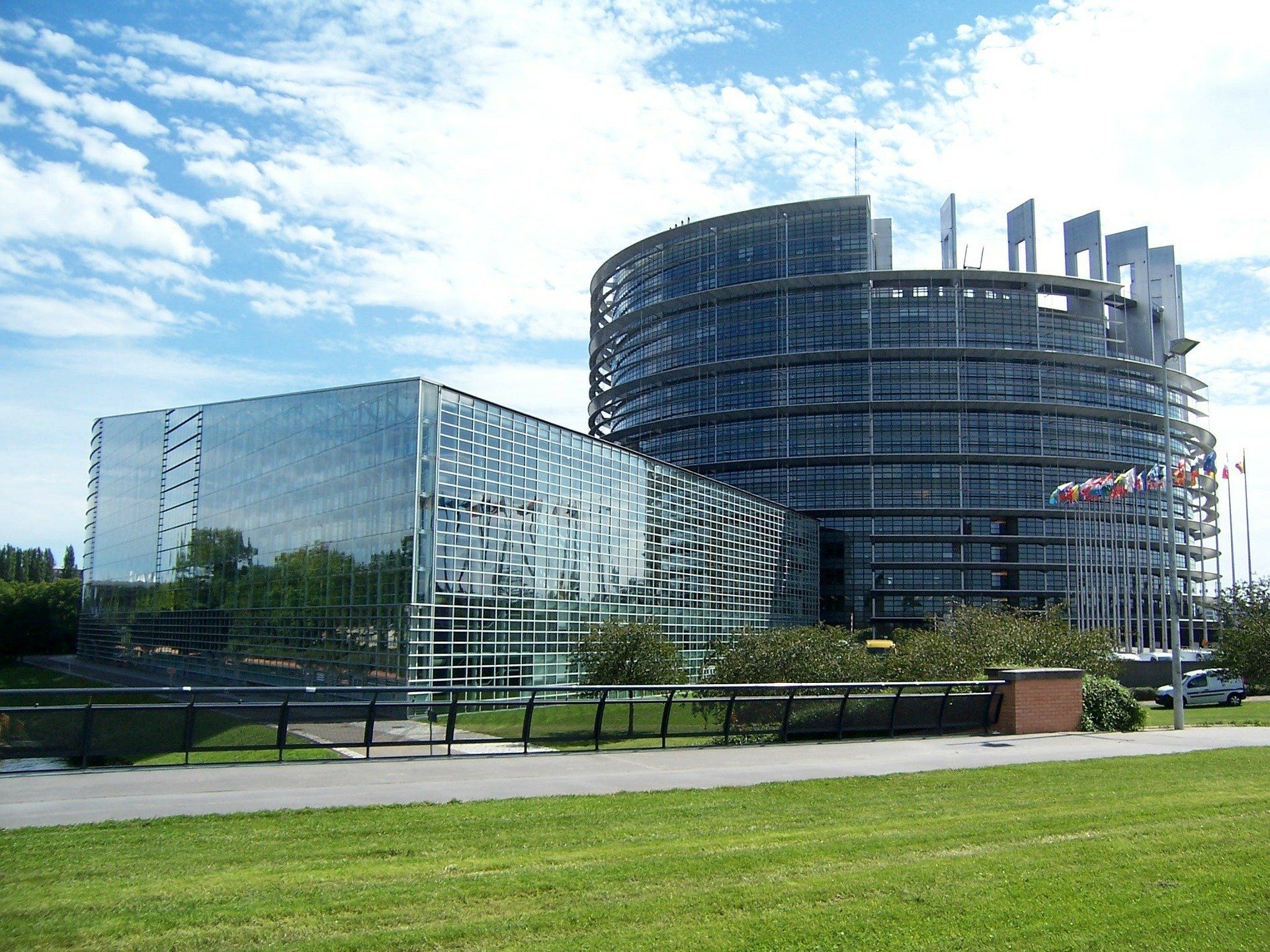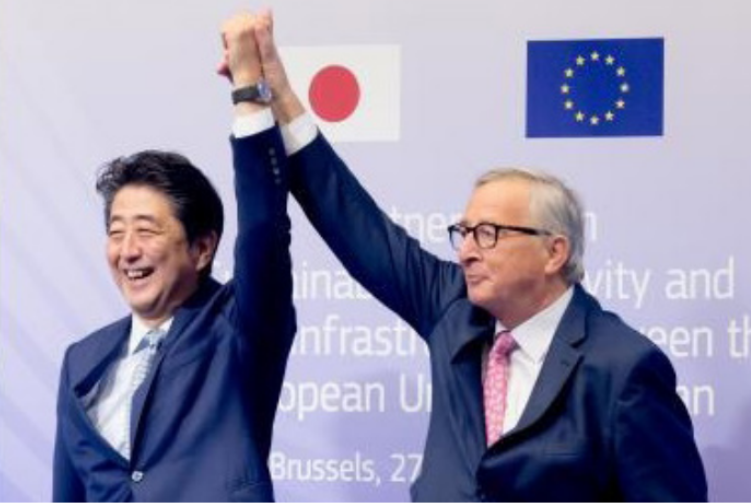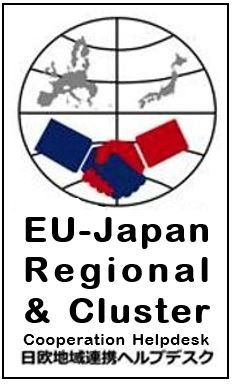ニュース
ニュース

23 Mar, 2021
SME INTERNATIONALISATION AND DIGITALISATION The covid-19 pandemic is a powerful trigger and accelerator of the digitalisation of business support services towards the internationalisation of SMEs, for example: •The digitalisation of business matchmaking services ena-bles increased outreach to many more SMEs as compared to physical matchmaking. It also opens the door to a new profile of SMEs which would have never participated in physical business missions outside the EU (covid-19 or not) by lack of time, money and staff. Hence, reaching out a hid-den part of the SMEs world with big potential. •Virtual business matchmaking has become a crucial asset for SMEs to survive these economic difficult times without dropping their internationalisation strategy. It enables them to continue building international partnership as it reduces the transaction costs and save resources. •Digitalisation also enables SMEs to evaluate more quickly and more regularly new markets and business oppor-tunities. They are then able to react more quickly to opportunities and threats with respect to changing market attractiveness. They can internationalise early, flexibly and fast, with fewer travel costs and less time.•Although the negative impact of the coronavirus crisis on businesses is a serious problem, it has also triggered a surge of new start-ups being set up in Europe, Japan and the US. As mentioned in a recent FT article (https://www.ft.com/content/3cbb0bcd-d7dc-47bb-97d8-e31fe80398fb), 10,000 new businesses were registered in September 2020 in Japan, 14% more than in the same month last year. France registered 84,000 new businesses in October 2020, up 20% on the same month last year and the highest ever recorded. •Given the major trend for EU-Japan business cooperation in third markets, digitalisation facilitates tri-lateral business matchmaking between the EU, Japan and third countries. They can more easily go beyond bilateral cooperation between the EU and Japan, and hence project EU-Japan business partnership to third countries, e.g., Asia or Africa. Digitalisation and internationalisation go hand in hand to provide opportunities to many more SMEs, for internationalising in a cheaper, faster, greener, more global and flexible ways, and delivering higher productivity compared to the ‘usual’ physical practice.It is dramatically changing patterns of entrepreneurial opportunity pursuit, value creation, innovation in the economy, and internationalisation. The 4th ‘industrial revolution’ is upon us. Does it mean that the above digitalisation assets for building international business partnership will make obsolete the regular physical journey? Probably not, as no matter how easy and effective it is to talk digitally, there is something else that face-to-face communication brings. Business is about building relationships and trust. It has an emotional dimension that a real-word event can – for the moment – enable more easily than a virtual one. The key challenge is likely to be how best to articulate the assets of digitalisation with the ones of the physical way. Perhaps via a double step approach, with first a large digital business matchmaking, followed by a much smaller physical one for finetuning. Dr. Philippe de Taxis du PoëtManaging Director, EU-Japan Centre for Industrial CooperationMinister Counsellor, Delegation of the EU to Japan Discover the full version

25 Feb, 2021
EU-JAPAN BUSINESS ROUND TABLE A NEW WAY FORWARD The 22nd annual meeting of the EU-Japan Business Round Table (BRT) on 5 November, led by Mr. Philippe Wahl of Le Groupe La Poste for the EU side and Mr. Masaki Sakuyama of Mitsubishi Electric Corporation for the Japan side, saw in-depth exchanges between business leaders on the impact and implementation of the EU-Japan Economic Partnership Agreement and how it has weathered the covid storm; on the importance of rules-based free and open trade; on the need for data free flow with trust and human-centric safe-guards, if the full potential of 5G is to be realised; on new opportuni-ties to be created by regulatory cooperation, standards convergence, the green transition, digital transformation, business cooperation in third markets, e.g. Asia and Africa; and on how to reorient the work and functioning of the BRT. METI Minister Hiroshi Kajiyama, Internal Market Commissioner Thierry Breton, MOFA State Minister Eiichiro Washio and MIC Vice Minister Mabito Yoshida and other representatives of the Authorities had an exchange of views with the BRT on the functioning of the EPA, digitalisation, data flows and regula-tory frameworks, covid-19, green issues and on business collaborations in third countries. The BRT’s 2020 Recommendations were formally handed over by Chairman Sakuyama to METI Minister Kajiyama.There was unanimous support for the need to strengthen EU-Japan coopera-tion building on the promising initial results to the EPA and SPA, to underpin our economic recovery, provide leadership in the setting of standards and to emphasise the importance of multilateral and free and open trade. Given this virtuous circle, it is essential that the BRT reviews its activities, make-up and methods so that it is able to support and help shape public policy leading to new possibilities for EU-Japan coopera-tion at home and in third countries. Senior industry and Authority representatives from the EU and Japan see the coronavirus pandemic as being both a disrupter and an accelerator of change. Whilst, trade flows and supply chains have been severely affected and travel restrictions – introduced for the best of motives – have been disruptive, covid has led to new ways of working and highlighted the importance of digitalisation and IT tools.The EU-Japan Centre for Industrial Cooperation (a DG GROW and METI joint venture) is happy to assist in the above way forward for the BRT, including via exploring for the 2021 meeting the possibility of organising a trilateral US-Japan-EU business discussion session for building common paths and preserving the benefits of openness. Yasuo Tanabe and Philippe de Taxis du Poët Managing Director, of the EU-Japan Centre for Industrial Cooperation Discover the full version

17 Nov, 2020
In Europe, there are 25 million SMEs, employing around 100 million people, and accounting for more than half of Europe’s GDP. In Japan, there are 3.8 million SMEs, accounting for 99.7% of the total number of companies. In both Europe and Japan, SMEs are essential in sustaining the economy, and global markets are a potential important source of growth for them. SMEs are in the heart of trade policies. Together with large multinationals, they are de facto on the front line for utilising the EPA. The priority for us at the EU-Japan Centre for Industrial Cooperation is making the EPA, as well as the SPA and Connectivity Partnership work for businesses, ensuring that they reap the maximum benefits from these agreements. This SME dimension is pivotal for the Centre given the growing importance they have in exporting in terms of standard metrics but also in respect to several key indicators such as export competitiveness, digital intensity of their exports, greenhouse gas emissions and jobs supported. For example, according to a recent report1, the number of EU exporting SMEs has grown steadily over time. More than 700,000 EU27 enterprises sold goods outside of the EU. Out of all these enterprises, around 615,000 were SMEs. They exported goods worth €476 billion, which represented 28% of the total value of extra-EU exports. The growing number in the EU and in Japan of young, tech-savvy SMEs can help more established industrial firms to adapt their business models and develop new form of work, business cooperation and innovation for the digital age. These SMEs are not only bringing innovative products and processes. They also are a good lever for improving the structure of our industrial ecosystems2 encompassing all players operating in a value chain e.g. from start-ups to the largest companies, from academia to research, service providers to suppliers.Finally, may I highlight and warmly welcome Mr. Yasuo Tanabe, the new Japan-side Managing Director of the EU-Japan Centre. I am convinced that his vast experience and proactiveness will bring much added value to our joint Centre. I invite you to read his article on page 2. Happy and honoured to work with you, Mr. Tanabe! Philippe de Taxis du PoëtManaging Director, (EU-side DG GROW), EU-Japan Centre for Industrial Cooperation Minister Counsellor, Delegation of the EU to Japan [1] https://trade.ec.europa.eu/doclib/docs/2020/june/tradoc_158778.pdf [2]https://ec.europa.eu/info/sites/info/files/communication-eu-industrial-strategy-march-2020_en.p Discover the full newsletter

02 Nov, 2020
The EU-Japan Centre organised in November 2018 a regional cooperation seminar to highlight examples of region-to-region cooperation and share experience with European and Japanese regions interested to engage in partnerships and cooperation related to industry, trade, investment and innovation. The seminar also touched upon Europe-Japan region-to-region cooperation targeting operations in third countries, such as in South East Asia, Latin America or Africa. Region-to-region cooperation appears to an effective means for bringing dynamism to local economy by notably internationalizing activities of local entities, including SMEs. Discover more details.
19 May, 2020
The report "EU-Japan region & cluster cooperation" on April 2020 by Réka Lóczi, is a result of a research under the Minerva scheme at the EU-Japan Centre for Industrial Cooperation, successes and challenges of existing EU-Japan region & cluster cooperation investigating benefits for SMEs participating in EU-Japan region & cluster cooperation schemes, with a focus on cooperation in regional innovation and business networks while offering the EU-Japan Centre advice on improving this type of cooperation as well. Discover the full report here.

By Virginie FERMAUD
•
09 Dec, 2019
Policy Learning, Matchmaking, and Sustainable Connectivity Conference on 27-29 April 2020 European Parliament, Strasbourg (France) [EVENT CANCELLATION] Due to the #Covid_19 outbreak, we regret to inform you that the EU-Japan Regional Cooperation Conference at the European Parliament on 27-29 April has been cancelled.

By Virginie FERMAUD
•
01 Dec, 2019
Connectivity is a megatrend of the 21st century. Rapidly growing interdependence between countries provides unprecedented opportunities for the well-being, safety and resilience of countries and societies. Against this background, the EU and Japan have built strong ties between them with the Economic Partnership Agreement (EPA) and the Strategic Partnership Agreement (SPA). With the Connectivity agreement, signed by PM Abe and President Juncker in Brussels on 27 September 2019, they are also strengthen ing what the EU and Japan can do together on the global scene to ensure synergies and complementarity between their respective cooperation with partner third countries. In this context, the industrial dimension of connectivity is impor tant, in particular the EU-Japan business collaboration in third mar kets, e.g. in South East Asia, Africa. The impetus for Japanese and European businesses to expand operations overseas continues to strengthen. This internationalisation is nothing new. But there is a growing trend of joint ventures or other types of collaborations be- tween European and Japanese companies in third markets, which rely on a combination of complementary technologies, with local know-how and connections. The co-financing agreements be tween European and Japanese financial institution, e.g. European Investment Bank (EIB), Japan International Cooperation Agency (JICA), Japan Bank for International cooperation (JBIC) and Nippon Export and Investment Insurance (NEXI) will be instrumental. Discover the full newsletter
ご質問がありましたら、 ヘルプデスクまで
お気軽にお問合せください。
お問い合わせ
+33 (0)3 88 13 66 38
EU Office ストラスブール
グラン・テスト地方・フランス





